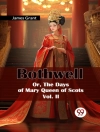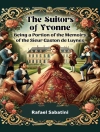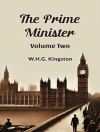In ‘The King of Alsander, ‘ James Elroy Flecker masterfully weaves a tapestry of lyrical prose and dramatic narrative that transports readers to a mythical world imbued with rich cultural textures and profound moral questions. Set against the backdrop of a fictitious Eastern kingdom, the poem explores themes of love, ambition, and the inevitability of fate through its striking imagery and rhythmic elegance. Flecker’s literary style, characterized by its blending of the epic with the intimate, finds its place within the early 20th-century context of modernist experimentation and neo-romanticism, inviting a reconsideration of heritage alongside an embrace of contemporary influences. Flecker, an English poet and playwright, drew inspiration from his travels and deep fascination with the Orient, notably evident in this work. His background in Classics and his experiences in the British diplomatic service fuel his acute understanding of the complexities of civilization and the human spirit. The echoes of his own melancholic yearning for an ideal world permeate the text, infusing it with an emotional gravitas that resonates throughout. With its enchanting narrative and evocative language, ‘The King of Alsander’ is a must-read for those who appreciate poetry that bridges the gap between historical allegory and the timeless exploration of the human condition. Readers will find themselves captivated by Flecker’s vivid imagination and his ability to illuminate the soul’s journey in search of meaning and connection.
Despre autor
James Elroy Flecker (1884-1915) was an English poet, novelist, and playwright heralded for his romanticism and exotic imagery influenced by the Parnassian poets and the Aesthetic movement. Born in Lewisham, London, to a family steeped in the church—his father was a headmaster and clergyman—Flecker’s education was marked by classical influences, attending Dean Close School, Uppingham, Trinity College, Oxford, and finally Gonville and Caius College, Cambridge. His career was diverse, working as a schoolmaster, diplomat, and for the Consular Service in the Levant, elements of which permeate his literary works with an authentic sense of place and culture.
Flecker’s notable contribution to literature is ‘The King of Alsander’ (1914), an evocative novel that exemplifies his imaginative narrative and lyrical style. Set in the fictional Mediterranean kingdom of Alsander, the book is a testament to the author’s fascination with the romance of the East and classical antiquity, and it reflects his own experiences and idealism. While this would be his only novel, Flecker’s oeuvre is predominantly known for his poetry, such as ‘The Golden Journey to Samarkand’ and ‘Hassan, ‘ which exhibit his strong metrical control and lush, sensuous imagery. Despite his untimely death at the age of 30 due to tuberculosis, Flecker’s literary impact was significant, influencing contemporaries and future writers with his distinctive blend of realism and fantasy, and his commitment to beauty in the face of the creeping modernist wave. His enduring legacy is a celebration of the poetic possibilities of language and the human spirit’s thirst for the mythic and the sublime.












